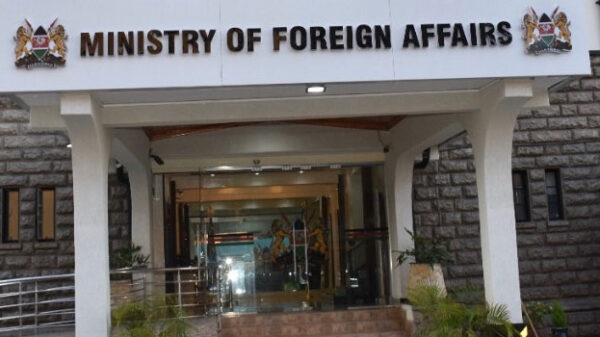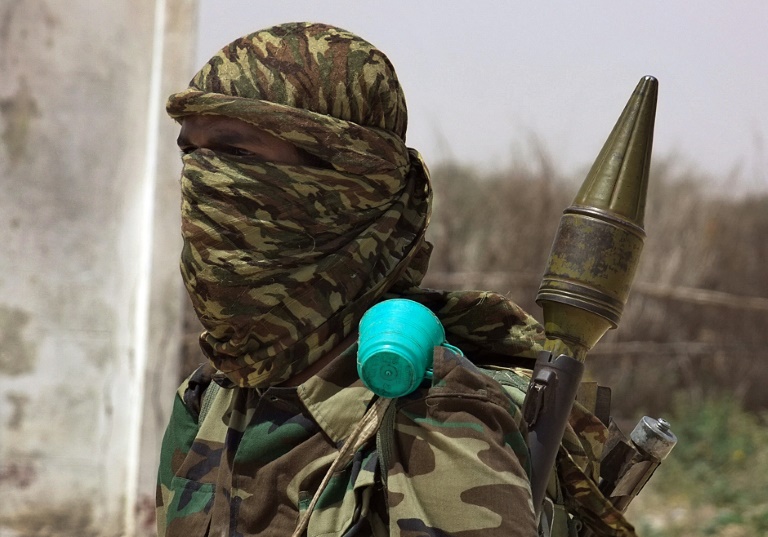
Khan was lauded for bringing Pakistan up to par with India in the atomic field © AFP/File / Aamir QURESHI
Islamabad (AFP), Oct 10 – Abdul Qadeer Khan, celebrated as the father of Pakistan’s nuclear weapons programme but accused of smuggling technology to Iran, North Korea and Libya, died on Sunday at 85.
The nuclear scientist, who spent the last years of his life under heavy guard, passed away in the capital Islamabad, where he had recently been hospitalised with Covid-19.
Khan had long been hailed a national hero for transforming Pakistan into the world’s first Islamic nuclear weapons power and strengthening its clout against rival and fellow nuclear-armed nation India.
But he was declared by the West a dangerous renegade for sharing technology with rogue nuclear states.
Pakistani Prime Minister Imran Khan joined a rapidly building chorus voicing grief at the news, lamenting that the country had lost “a national icon”.
Arrangements were quickly made for a state funeral Sunday afternoon at Islamabad’s Faisal Mosque, with all government ministers and armed forces officers asked to attend. Flags were also ordered to fly at half-mast.
According to Islamic tradition, burials should take place as soon as possible, usually within 24 hours of death.
Just hours after news of Khan’s death broke, an orange mechanical digger was busy clearing a grave as mourners began arriving for the service at the giant mosque — the sixth-largest in the world.
It began raining heavily as Khan’s coffin, draped with a Pakistani flag, was carried through a sea of black umbrellas.
Amid tight security, a massive crowd gathered to bid him farewell, with many making videos and snapping pictures as the coffin was carried into a tent-covered area accommodating Khan’s family members, ministers and other top officials.
Nearby, thousands of members of the public crammed into an uncovered enclosure, getting soaked as they prayed in the downpour.
– Black market –
Khan was lauded for bringing the nation up to par with India in the atomic field and making its defences “impregnable”.
But he found himself in the international crosshairs when he was accused of illegally sharing nuclear technology with Iran, Libya and North Korea.
He confessed in 2004, after the International Atomic Energy Agency — the UN nuclear watchdog — put Pakistani scientists at the centre of a global atomic black market.
Pardoned by the nation’s military ruler Pervez Musharraf, he was only put under house arrest for five years.
“I saved the country for the first time when I made Pakistan a nuclear nation and saved it again when I confessed and took the whole blame on myself,” Khan told AFP in an interview in 2008.
After his house arrest was lifted, he was granted some freedom of movement around the leafy capital, but always flanked by authorities, who he had to inform of his every move.
On Sunday, journalists gathered behind barriers blocking off the street leading to his home in the capital as a procession of cars entered and left the property.
– Best deterrent –
Born in Bhopal, India on April 1, 1936, Khan was just a young boy when his family migrated to Pakistan during the bloody 1947 partition of the sub-continent at the end of British colonial rule.
He did a science degree at Karachi University in 1960, then went on to study metallurgical engineering in Berlin before completing advanced studies in the Netherlands and Belgium.
His crucial contribution to Pakistan’s nuclear programme was the procurement of a blueprint for uranium centrifuges, which transform uranium into weapons-grade fuel for nuclear fissile material.
He was charged with stealing it from the Netherlands while working for Anglo-Dutch-German nuclear engineering consortium Urenco, and bringing it back to Pakistan in 1976.
On his return to Pakistan, then prime minister Zulfikar Ali Bhutto put Khan in charge of the government’s nascent uranium enrichment project.
By 1978, his team had enriched uranium and by 1984 they were ready to detonate a nuclear device, Khan later said in a newspaper interview.
He maintained that nuclear defence was the best deterrent.
After Islamabad carried out atomic tests in 1998 in response to tests by India, Khan insisted Pakistan “never wanted to make nuclear weapons. It was forced to do so”.
None of the controversies that dogged Khan’s career appeared to dent his popularity at home.
Many schools, universities, institutes and charity hospitals across Pakistan are named after him, his portrait decorating their signs, stationery and websites.
About The Author
























































